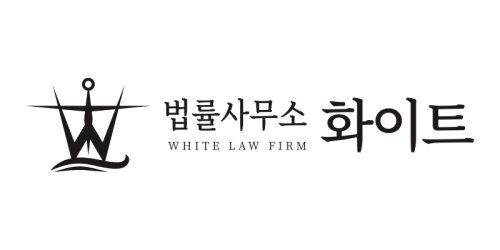Best Reinsurance Lawyers in South Korea
Share your needs with us, get contacted by law firms.
Free. Takes 2 min.
Or refine your search by selecting a city:
List of the best lawyers in South Korea
About Reinsurance Law in South Korea
Reinsurance in South Korea is a sophisticated segment of the insurance market, designed to enable insurance companies to mitigate risks by transferring portions of their liabilities to other insurers. Known for its dynamic economic landscape, South Korea’s reinsurance market is regulated by several laws and governmental bodies, ensuring both transparency and efficiency. The Financial Supervisory Service (FSS) monitors and regulates the insurance sector, including reinsurance operations, maintaining the stability and integrity of the financial ecosystem.
Why You May Need a Lawyer
Legal assistance in reinsurance can be essential under various circumstances. Common situations include navigating complex reinsurance contracts, resolving disputes over claims or coverage, and ensuring compliance with South Korean regulatory requirements. Legal experts can provide valuable insights into negotiation processes, help structure deals that align with local laws, and represent parties in case of arbitration or litigation. A lawyer with expertise in reinsurance can be crucial in guiding companies through mergers, acquisitions, or partnerships within this specialized field.
Local Laws Overview
The South Korean legal framework governing reinsurance draws from general insurance law, with specific regulations under the Insurance Business Act. This act outlines the operational requirements for both local and foreign reinsurance entities, including capital adequacy, reporting standards, and licensing procedures. The overarching goal of these laws is to maintain financial health and ethical practices within the industry. Additionally, the reinsurance market is influenced by international treaties and agreements to which South Korea is a party, affecting cross-border reinsurance transactions.
Frequently Asked Questions
What is the purpose of reinsurance?
Reinsurance allows insurance companies to protect themselves against large claims by spreading risk across multiple entities, thus ensuring stability and solvency.
Is reinsurance mandatory for insurance companies in South Korea?
While reinsurance is not mandatory, it is a strategic tool used by many insurance companies to enhance their capacity and manage risk effectively.
How is the reinsurance industry regulated in South Korea?
The FSS oversees the reinsurance industry in South Korea, enforcing regulations under the Insurance Business Act to ensure industry compliance and protect policyholders.
Can foreign reinsurance companies operate in South Korea?
Yes, foreign reinsurance companies can operate in South Korea, provided they comply with local registration and operational requirements as stipulated by the FSS.
What are the different types of reinsurance contracts available in South Korea?
Common reinsurance contracts include treaty reinsurance and facultative reinsurance, which differ in terms of coverage scope and risk management strategies.
How are reinsurance disputes typically resolved in South Korea?
Reinsurance disputes may be resolved through negotiation, mediation, arbitration, or, if necessary, litigation in South Korean courts.
What is the role of the Financial Supervisory Service in reinsurance?
The FSS is responsible for regulating and supervising the reinsurance market, ensuring compliance with the law, and maintaining market integrity.
How do reinsurance contracts impact insurance premiums?
Reinsurance contracts can influence insurance premiums by providing insurers with better risk management tools, potentially leading to more competitive premium rates.
Are there any restrictions on the types of risks that can be reinsured in South Korea?
While most risks can be reinsured, certain high-risk sectors might face more stringent regulatory scrutiny or require specific approval.
How does reinsurance benefit policyholders?
Reinsurance strengthens an insurer’s financial stability, ensuring that they can meet their obligations to policyholders even in the event of significant claims.
Additional Resources
For those seeking more information or assistance with reinsurance-related matters, the following resources may be helpful:
- The Financial Supervisory Service (FSS)
- Korean Life Insurance Association
- General Insurance Association of Korea
- Korea Insurance Research Institute
Next Steps
If you require legal assistance in the field of reinsurance, consider reaching out to a law firm specializing in insurance or corporate law in South Korea. Ensure the lawyer or firm has experience with reinsurance contracts and disputes. Begin by gathering all your relevant documentation and outline your specific legal needs. You may also want to contact professional organizations or seek referrals from industry peers to find qualified legal expertise.
Lawzana helps you find the best lawyers and law firms in South Korea through a curated and pre-screened list of qualified legal professionals. Our platform offers rankings and detailed profiles of attorneys and law firms, allowing you to compare based on practice areas, including Reinsurance, experience, and client feedback.
Each profile includes a description of the firm's areas of practice, client reviews, team members and partners, year of establishment, spoken languages, office locations, contact information, social media presence, and any published articles or resources. Most firms on our platform speak English and are experienced in both local and international legal matters.
Get a quote from top-rated law firms in South Korea — quickly, securely, and without unnecessary hassle.
Disclaimer:
The information provided on this page is for general informational purposes only and does not constitute legal advice. While we strive to ensure the accuracy and relevance of the content, legal information may change over time, and interpretations of the law can vary. You should always consult with a qualified legal professional for advice specific to your situation.
We disclaim all liability for actions taken or not taken based on the content of this page. If you believe any information is incorrect or outdated, please contact us, and we will review and update it where appropriate.
Browse reinsurance law firms by city in South Korea
Refine your search by selecting a city.











